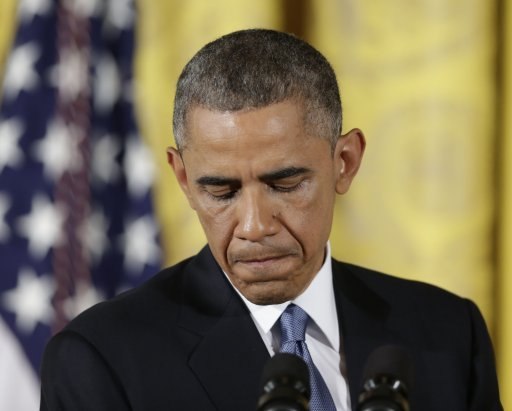Obama fatigue? The Economist/YouGov poll conducted immediately before the midterm elections reveals discontent with the president in a number of important areas
President Obama was hurting even before the Democrats’ crushing loss in the 2014 midterm elections, with Americans thinking poorly of him on almost all levels: half said he cared little or nothing about their needs and problems, even more were uneasy with his approach to international crises. And most Americans are glad that the Constitution limits him to just two terms: the latest Economist/YouGov Poll finds just that 19% wish he could run again.
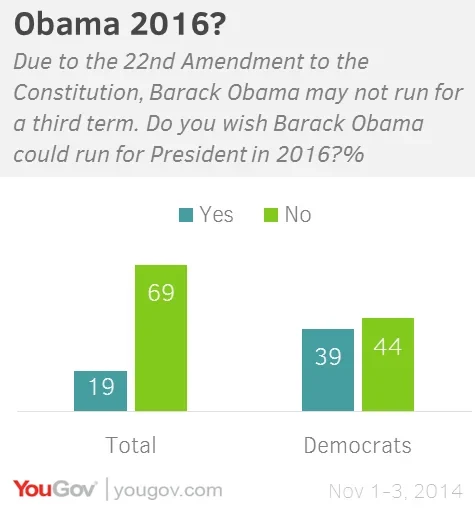
Democrats, too, may have Obama fatigue. Just over a third of them wish he could run again.
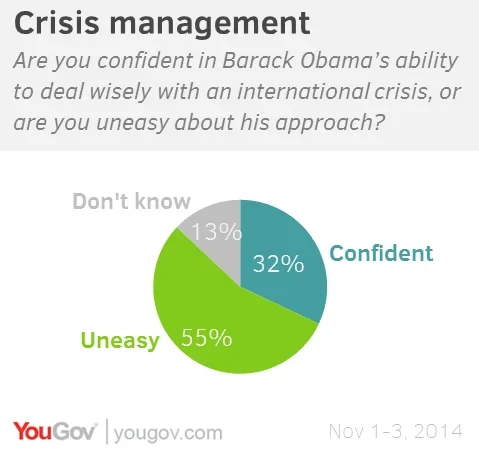
Candidates for president often have difficulty overcoming the hurdle of competence in foreign policy. Although he has been in office nearly six years, this president fares poorly on that measure. Only 37% approve of how Barack Obama is handling foreign policy overall. Most Americans think the United States has failed in Iraq and Afghanistan, and this view has impacted opinions of the president. Only one in three have confidence in Barack Obama’s ability to handle an international crisis.
Over his time in office, the president has seen changes in popularity, with his low points following the 2010 Democratic drubbing at the polls. His approval rating may be heading in the same direction now. On the weekend before the midterms, his approval rating dropped to 38%, with 58% disapproving. However, there is still a little distance between today’s assessment and his prior low points.
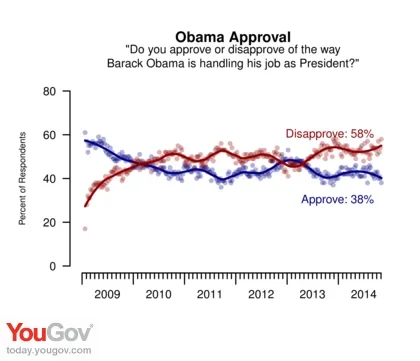
One in four Democrats disapprove of the President’s overall job performance.
What is striking is that so many Americans can’t identify with the president and what he believes. Asked whether Barack Obama shares the values most Americans try to live by, as many say he does not as think he does. The vast majority of Republicans have disliked this president for a long time (in this week’s poll 95% of Republicans disapprove of the way he is handling the job and the same percentage hold an unfavorable view of him), and when it comes to assessing the president’s values, 79% of Republicans think of them as different from those of most Americans.
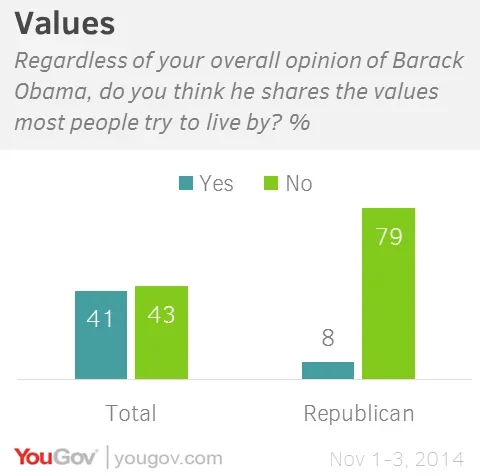
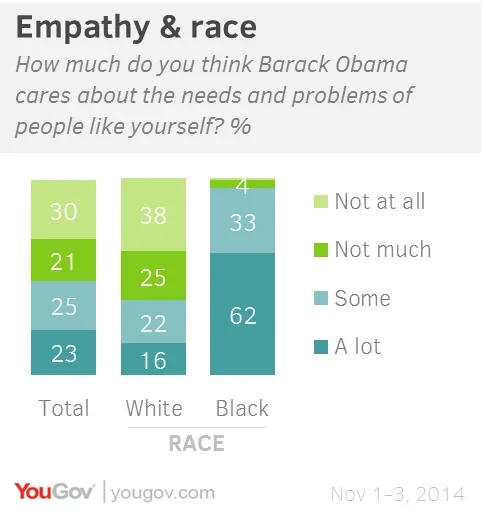
A majority of whites agree with the Republican assessment; 33% of whites say President Obama shares Americans’ values, but 52% say he does not.
Many Americans also think the president doesn’t identify or care about them. Just under half say he cares at least somewhat about their needs and problems, but slightly more think he does not. On this question, a racial split is evident: more than six in ten whites say President Obama doesn’t care much – or cares not at all – about their needs and problems.
54% have an overall unfavorable opinion of the president himself. Just 40% are favorable.
Most of those who hold overall unfavorable views of the president use strong words that attack his competence or his ideology. There are some, though not too many, that take it further with even more personal attacks on his characteristics.
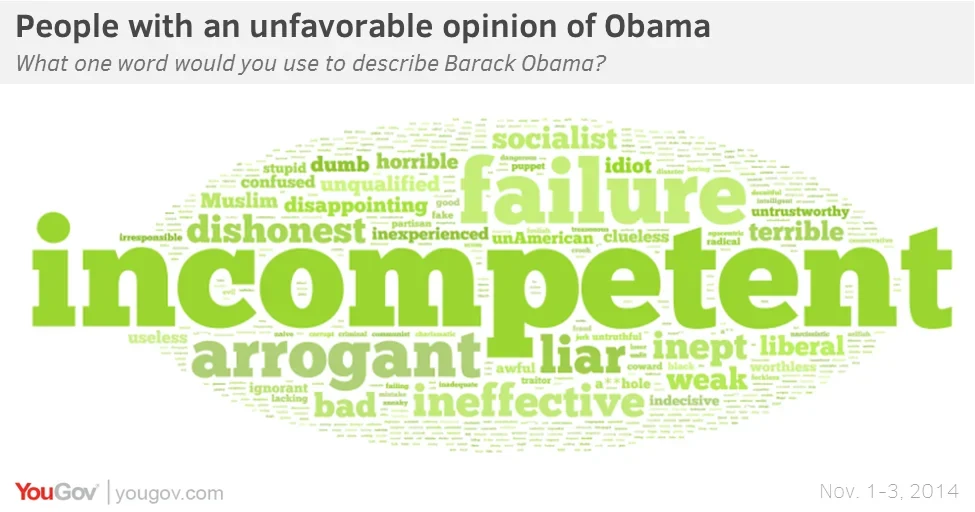
Those who like the President seem more muted in the positive assessments, with some pointing not to his successes, but to the problems he has faced in his administration. There is no one characteristic that completely dominates, as it has for some politicians (for example, “honesty” dominated positive words linked to Mitt Romney two weeks ago and also dominates negative evaluations for Hillary Clinton), but "intelligent" and "strong" are popular choices.
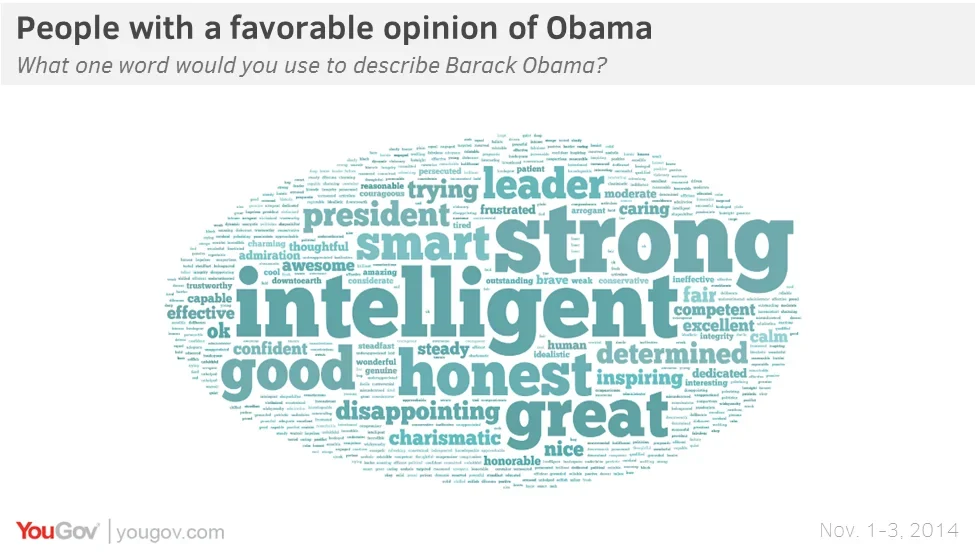
There has been far more intensity from those who don’t like the President than those who do. Only 14% strongly approve of the way Barack Obama is handling his job, while 39% strongly disapprove. Even among those in his own party, only a third strongly approve, while three in four Republicans strongly disapprove.
Full results can be found here.
Economist/YouGov poll archives can be found here.
Ed. note: The graphic showing the "unfavorable" word cloud was mislabelled in an earlier version of this article.